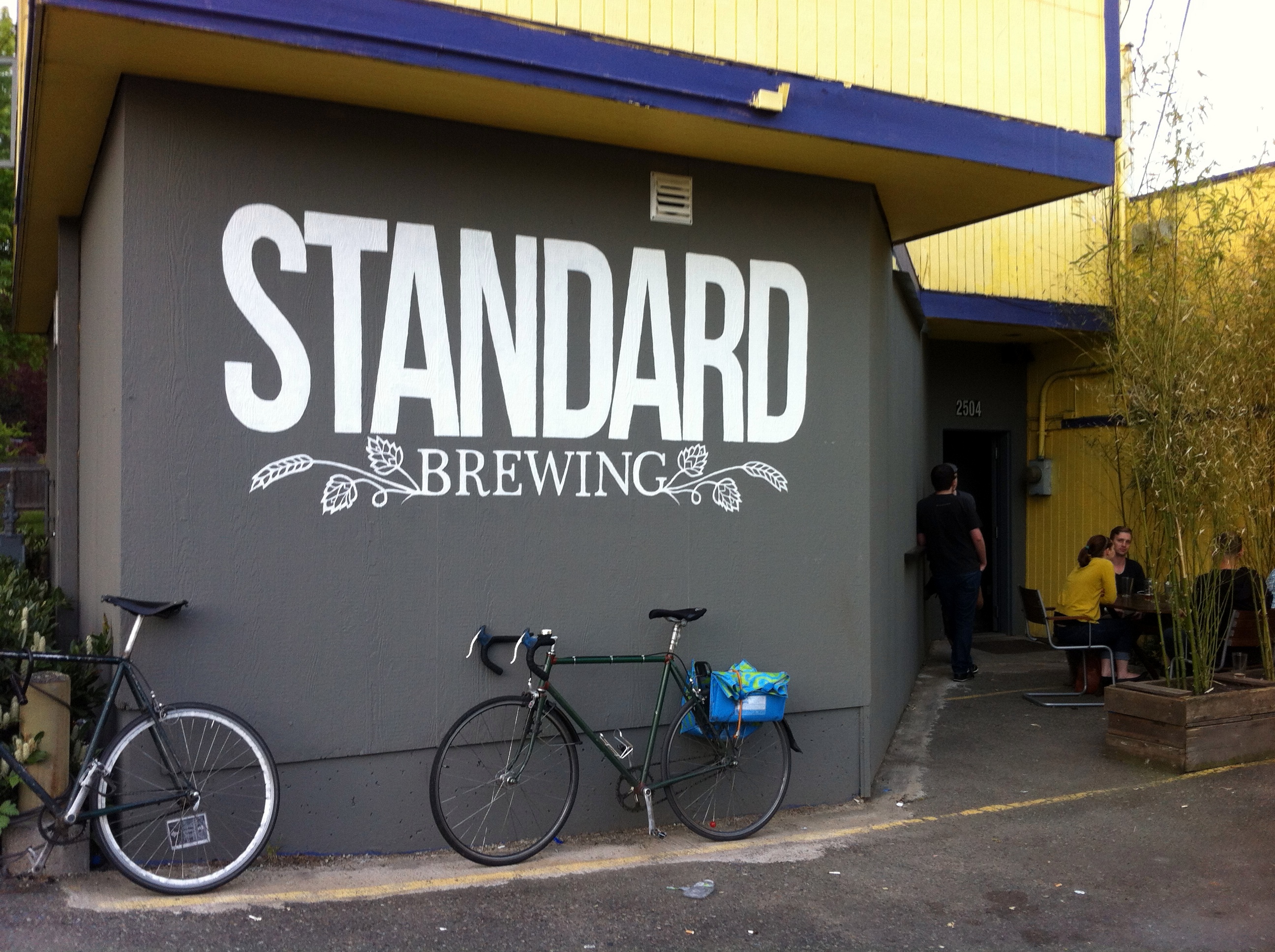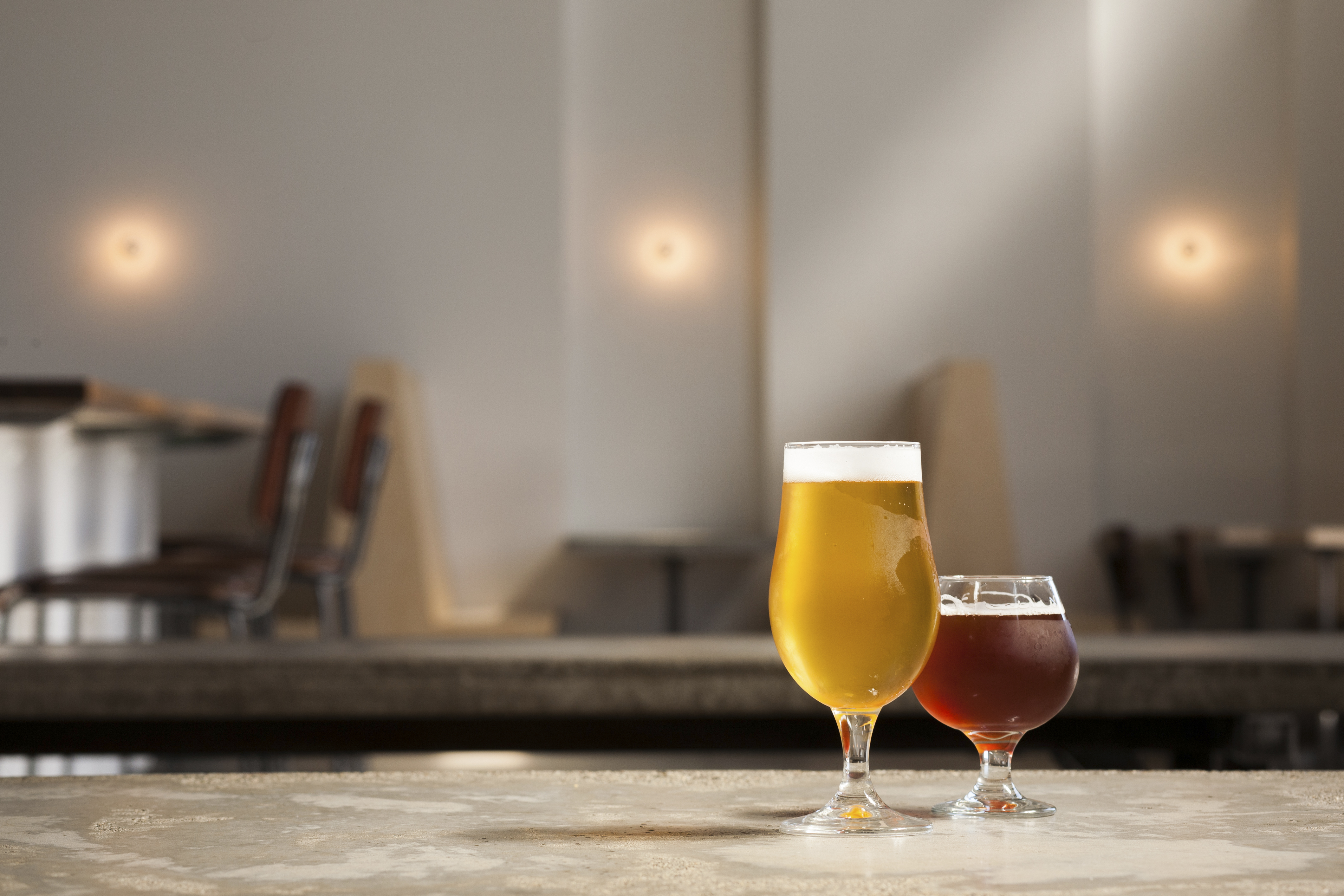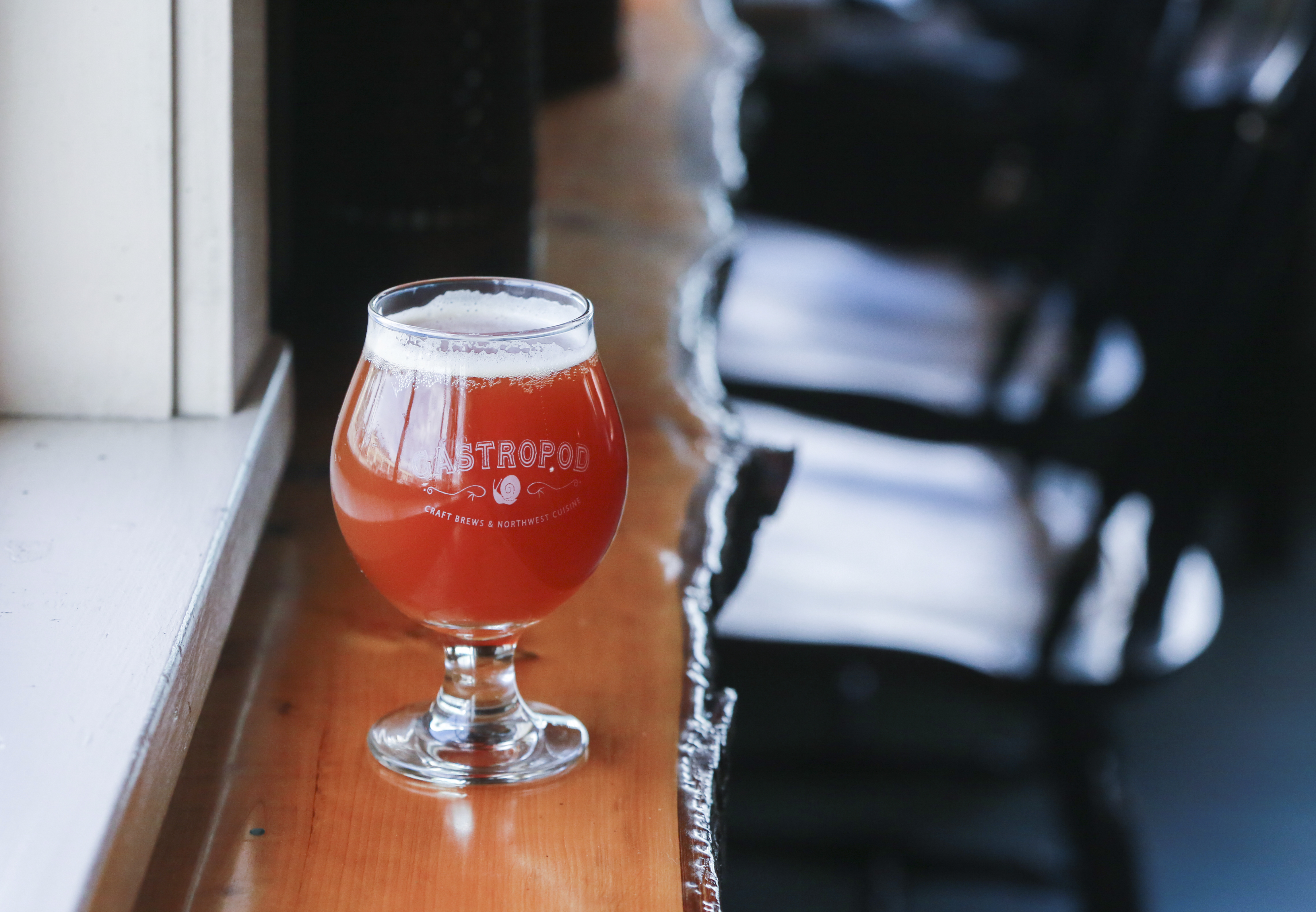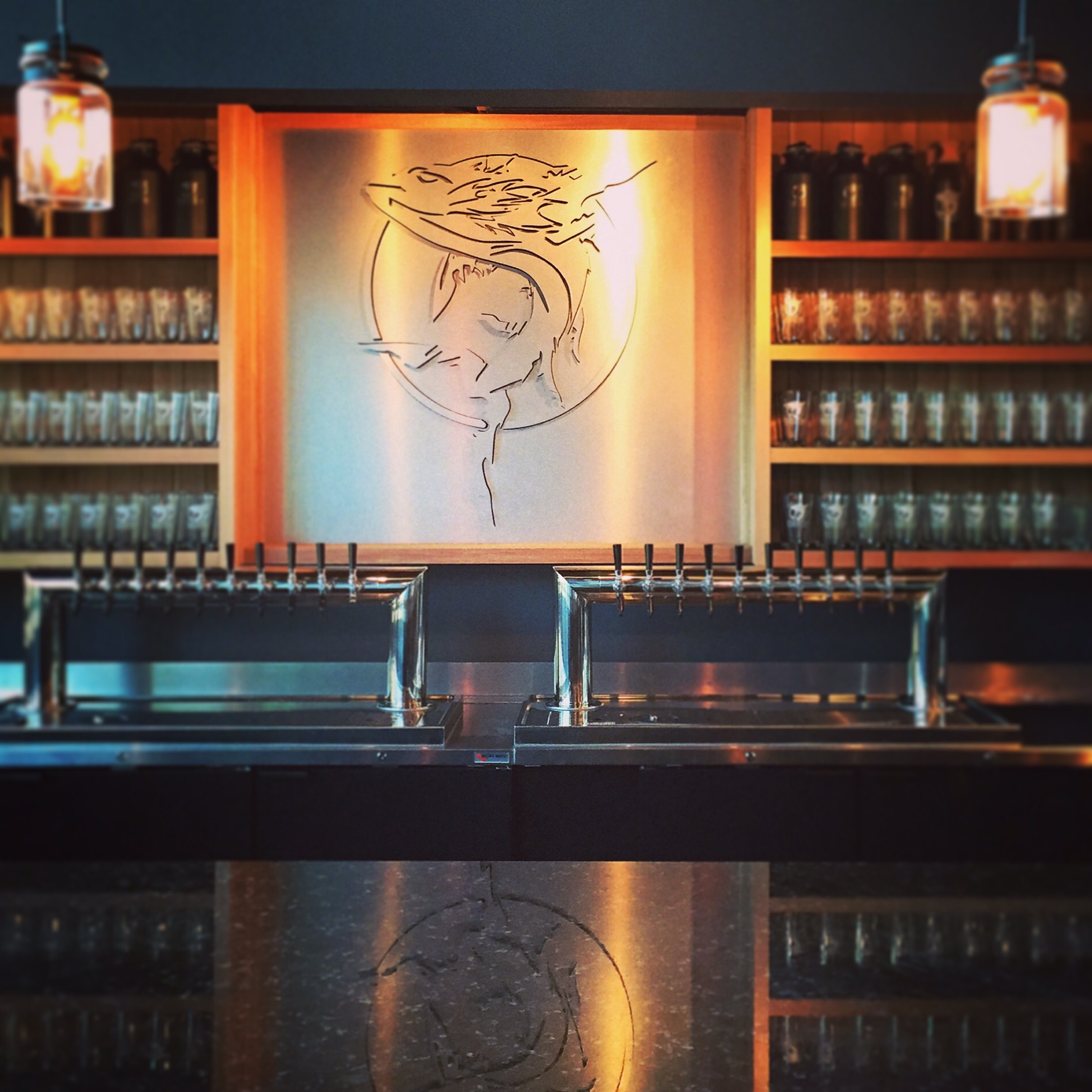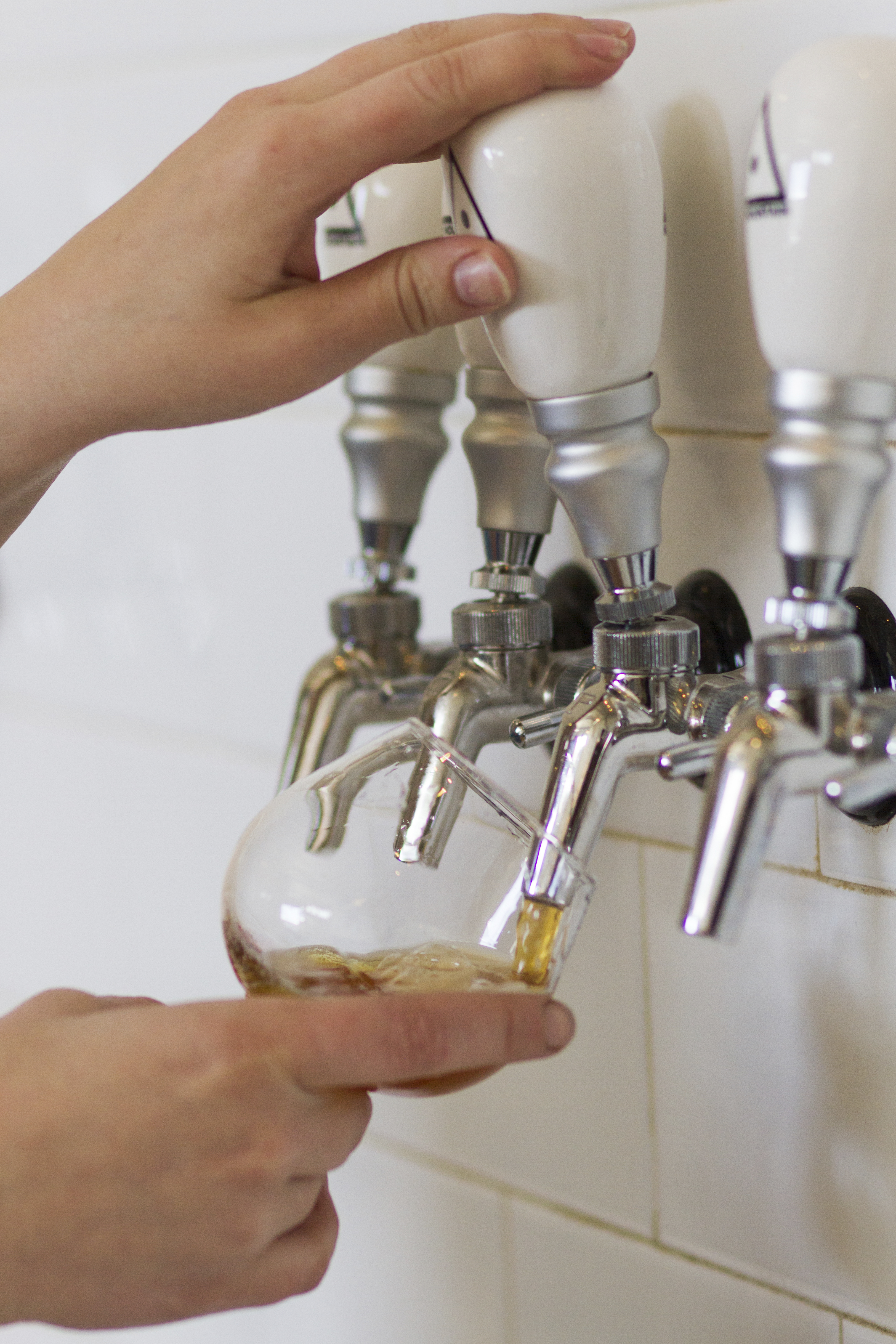Patrons packed in, and Justin Gerardy’s Central District nanobrewery sold out of beer the first three days it was open. Gerardy, former bar manager at Vito’s and the Hideout, opened Standard Brewing on March 20, in what has proven to be a busy few months of nanobrewery openings.
This year alone, Populuxe Brewing opened in Ballard, and Bad Jimmy’s Brewing is set to open there soon. Machine House Brewery opened in Georgetown, and Spinnaker Bay will open soon in Columbia City. North Queen Anne will welcome Rooftop Brewing Company this summer.The boom of nanobreweries – small shops that are generally defined as a four barrel brewing system or smaller – seems to be riding the craft beer wave. These neighborhood joints have limited hours, a handful of beers, and closet-sized tasting rooms, but they’re often filled to capacity.Gerardy says the nano growth is a natural next step for the industry following the increase in home brewing.“It took me a while to figure it out but it came from the homebrew explosion that happened right before nanobreweries. I think that all came from the fact that the internet made so much information available,” says Gerardy, who started as a home brewer and seems to favor hoppy beers; his line-up includes a pale ale, an IPA, a rye IPA, a Cascadian Dark Ale, and a surprisingly complex ginger beer called Bee’s Wine. “I feel like there’s no more open source of an industry than brewing. Everyone is really open with their secrets—or their nonsecrets—and you can learn anything you want form a little Googling.”Another home brewer turned nano owner is Craig Christian, who is opening Rooftop Brewing this summer with fellow hobbyists Parker Wittman and Tyson Carlson, and Angela Wittman and Jessica Cohen, the brains behind the business. The team has been outfitting their Queen Anne space when they’re not busy with their day jobs.“I’ve been working as a lawyer in the morning and a brewer in the afternoon,” Christian says. His team plans to start with four recipes: an IPA, a pale ale, a porter made with beans from Seattle’s Seven Roasters, and a malty braggot infused with honey. Rooftop, like Standard, will be a one-barrel brewing system.These businesses are hedging their bets that Seattle can support a bunch of new breweries. So far, they seem to be right; their success is proving the market to be elastic – or at least extremely ripe for this growth. Seattle is increasingly a craft beer town, where beer nerds like to drink small batch brews. And there seems to still be an unmet demand for local, craft beer, and the uniquely intimate experience thatcomes from sampling in the tap rooms of nanobreweries.“It’s funny, there’s a lot of people who said, ‘Really, do we need another brewery?’ and I think people really want to know the brewer. I think they want to go hang out in the space where it’s brewed,” Gerardy says. “To some extent, I was rolling the dice on that but I felt pretty confident that people want local, they want small. I felt pretty comfortable with it.”Christian echoed Gerardy’s thoughts. “Ballard’s certainly going to test the theory, which is the more different varieties of beer, the better. People in the brewing industry are all very friendly and open and I think very sincere in the belief that the more different beers we have in Seattle the more people will come to make it a destination for beer lovers. I’m not worried.”
